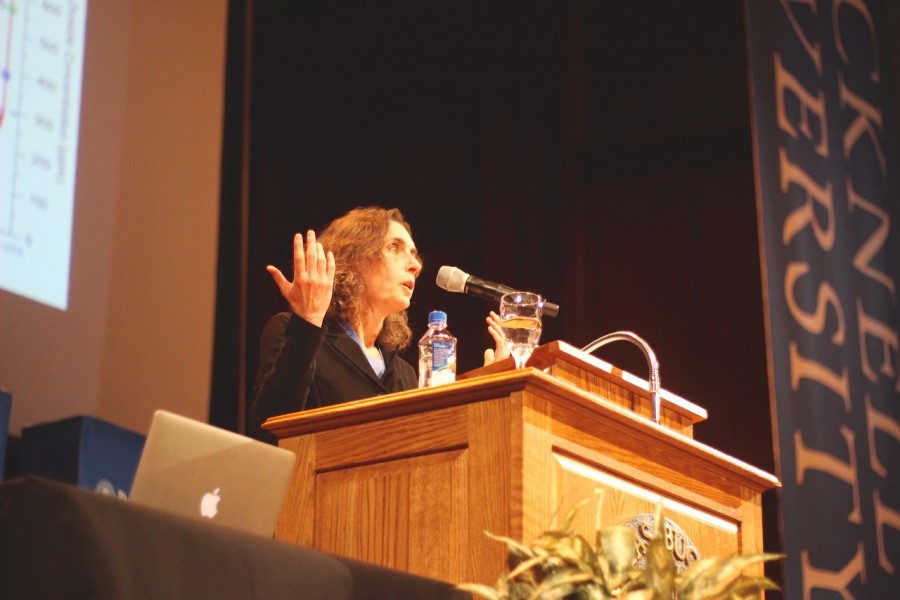Kolbert warns students: “We are in the Sixth Extinction”
January 29, 2016
On Jan. 26 at the Weis Center for Performing Arts, Elizabeth Kolbert, discussed her Pulitzer Prize-winning book, “The Sixth Extinction: An Unnatural History,” a nonfiction work that argues that Earth is in the midst of a man-made sixth extinction. Recently named a Janet Weis Fellow in Contemporary Letters, Kolbert is now the twelfth recipient to have received such an honor, joining the likes of writers Toni Morrison, John Updike, and Tom Wolfe.
President John Bravman introduced Kolbert and her work, and explained the significance of the award he bestowed upon her. After accepting it, Kolbert began her presentation and immediately delved into the historical context of her book, explaining that the sixth extinction was not an expression that she “coined,” but merely a reference to what follows five biological extinctions that have already occurred in Earth’s history.
Throughout the talk, she referenced many characters from her book, endangered species whom she met personally and spoke about, in order to heighten the audience’s empathy toward the endangerment crisis.
“By talking about less known species and the impact the changing environment is having on them, the talk became very personal,” Alyssa Dedrickson ’19.
Touching on threats prevalent to the world’s atmosphere, oceans, and intrinsic species, Kolbert said that she was aiming to convey to the present students and faculty “a sense of what’s at stake.” While discussing her views on climate change, Kolbert informed the audience that our current carbon output not only leads to the heating of the earth, but the destruction of the oceans. Oceans have absorbed roughly a third of the carbon dioxide emitted since the start of the Industrial Revolution, amounting to some 150 billion metric tons, increasing the acidity of our oceans by a whopping 30 percent and causing ocean acidification. Moreover, 25 percent of the emissions we release, Kolbert explained, are absorbed into the ocean, threatening species from shellfish to coral reefs.
“Government and politics seem to be disjointed from reality,” Kolbert said prior to the lecture.
She said that the government is seemingly unable to produce change on a scientifically indisputable issue. Kolbert urged everyone, millennials especially, to vote and to make noise—to contribute to fixing the issue.
While many students appeared enraptured as Kolbert lectured, some left the packed auditorium feeling disappointed that the presentation did not dive into more complex issues.
“I honestly thought the talk was very broad and didn’t present anything new to me but rather reiterated common knowledge. I left that talk without knowing much about her book,” Anthony Scrima ’18 said.
In the beginning of her presentation, Kolbert warned the audience that she would not reveal what we should do, or even how we should feel, about she everything presented. Though not all students left the event fully satisfied, all heard her plea for change. Whether any action will result from that plea, though, is left for debate.






















